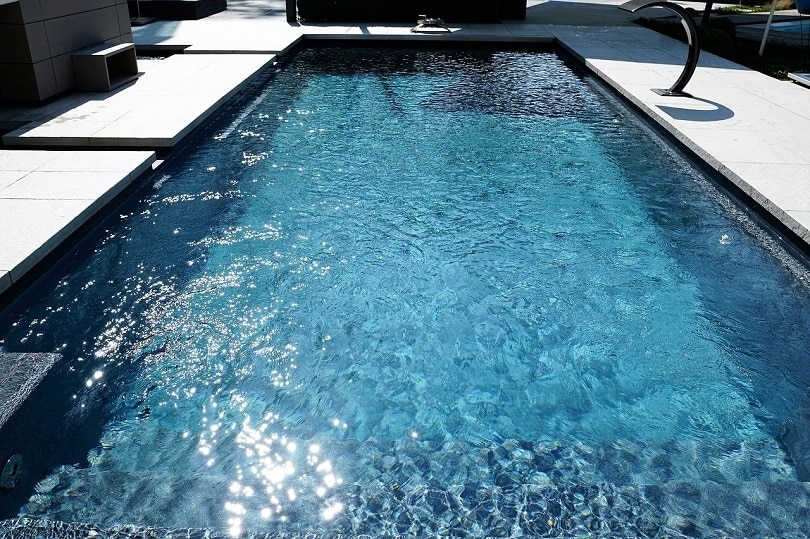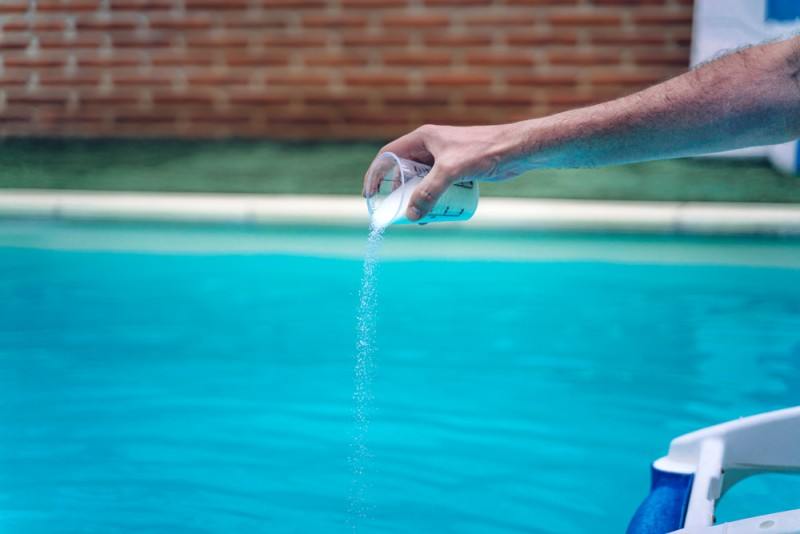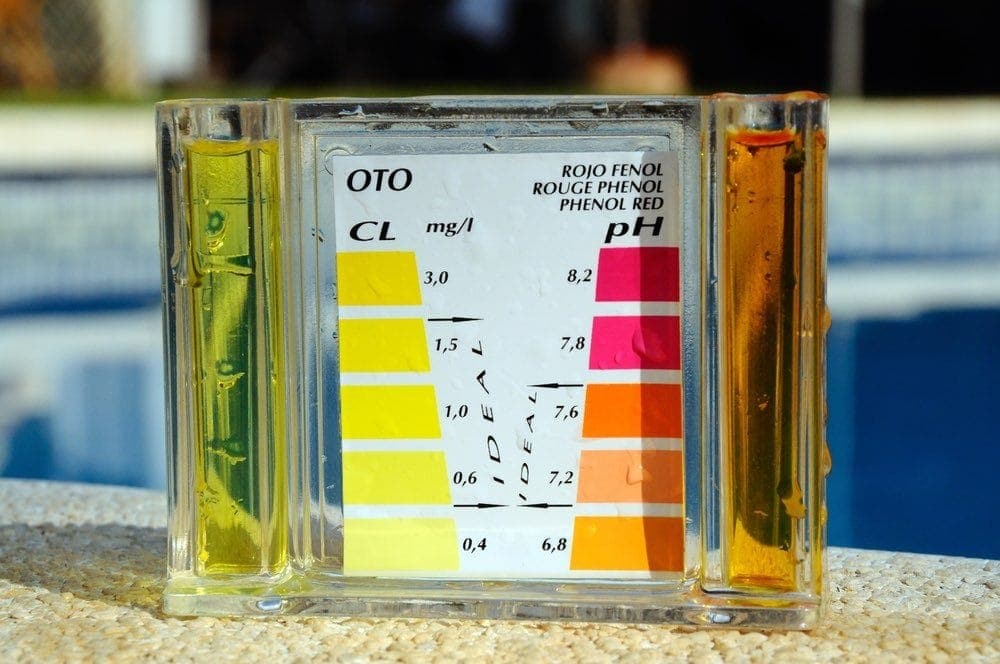Total Chlorine vs. Free Chlorine: What’s the Difference?
-
Pete Ortiz
- Last updated:

You may have heard the terminology total chlorine and free chlorine tossed around by pool experts. Most pool owners do not know the difference between total chlorine and free chlorine. Knowing the difference could be helpful when it comes to issues that come up in your swimming pool. We will help you figure out yet another confusing pool terminology question and give you some ideas on how to fix things should you have a chlorine problem in your pool.
What Is Free Chlorine?
Free chlorine is the conventional chlorine that you add to your pool. It is the chlorine that most home will measure for. Free chlorine should always be between 1 and 3 parts per million (ppm) at any given time. Chlorine is a potent chemical that should be handled with great care. As dangerous as chlorine can be, it is also extremely helpful in keeping pool water clean and safe.
When chlorine is put in a pool, it attaches itself to nitrate, ammonia, or other harmful bacteria in the water. It works to sanitize these things and keep the water clean.

What Is Combined Chlorine?
We know this was supposed to be all about total and free chlorine, but there is one other chlorine measurement that you must be aware of for this to all make sense.
Combined chlorine is the chlorine that has done its job. Combined chlorine, although it has been used, is still in the pool water. Since it has been hard at work, it has much less ability to sanitize until more chlorine is added to the pool.
Have you ever been to a pool that smells very strongly of chlorine? Most people think this is because there is too much chlorine in the water. Interestingly what you smell is the chloramines or the used-up chlorine. This is essentially combined chlorine. When the combined chlorine level gets very high, you will be able to smell the chloramines, and it can become irritating for some people.
What is Total Chlorine?
Now, finally, on to the total chlorine. The total chlorine is the combination of free chlorine and combined chlorine that you have in your pool. Not all at-home test kits will measure total and free chlorine. If you are looking to have a measurement of both of these, here are a few kits that can help.
- Hach 2745050 Free & Total Chlorine Test Strips
- RUNBO 7 in 1 Pool & SPA Quality Testing Strips
- DMIGHT Pool Test Strips
What Happens If My Combined Chlorine Is Too High?
If your combined chlorine is too high, it will release that chlorine smell that we all know too well. What this actually means is that your pool needs more chlorine to help the combined chlorine out. It seems counterintuitive to put more chlorine in a pool that smells like chlorine, but it actually will help to reduce the smell.
You always want to make sure that your free chlorine is higher than your combined chlorine. If the combined chlorine gets too high, this is when you will see algae breakouts or cloudiness in the water. Once your levels are this far off, it will likely take a shock to get things back to normal. Your combined chlorine should ideally be around 0.2 ppm.

How To Fix The Chlorine Levels In Your Pool
If you find that for some reason, your chlorine levels in your pool are off, you need to do some math to get them back to where they need to be. First, do a test of your water. Find out your base level. Next, you must make sure you know your pool size. Knowing the size will help you determine how much chlorine you need to add to raise your free chlorine. Usually, one tablet or scoop will raise your pool one ppm, depending on the size of the pool. There should be a chart to figure this all out.
If you are not confident your measurements are correct, then be cautious with how much you put in. Put in a little less than what you think, and test the water again. This should give you a good idea if you are headed in the right direction or if you were way off.
Conclusion
Understanding the difference between free chlorine and total chlorine can help out when it comes to algae and cloudiness issues in your pool. If nothing else, now you can understand that the chlorine odor in your pool is a call out for some extra help with the sanitizing job. Staying on top of your pool chlorine levels can feel like a full-time job, but the more you get used to testing it, the more success you will have with keeping that pool swimmable all season long.
Featured Image Credit: photosforyou, Pixabay
Contents


